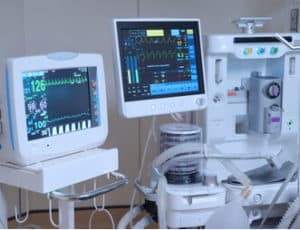Connecticut Defective Medical Device Attorney

Although medical devices are intended to protect and improve health, many products meant to be used in the medical field are not tested as vigorously as they should be. When a medical device or product fails, product manufacturers may bear responsibility pursuant to Connecticut’s Product Liability Act. Your treating physician or the medical professional who installs your medical device may also be held liable as a “learned intermediary”. Because “learned intermediary” law can be complex, it’s wise to retain the services of a law firm who has navigated these waters previously. The Kocian Law Group can assist you with these types of product liability cases.
What is the “Learned Intermediary” Doctrine?
Medical devices are products. The Connecticut Product Liability Act (PLA), enacted in 1979, allows patients injured by medical devices to sue for damages. Generally speaking, the PLA is the only way for those injured by medical devices to hold product “sellers” (i.e., product manufacturers, wholesalers, distributors or retailers) liable for personal injuries or property damage caused by a defective product.
To be found “defective”, a product must be unreasonably dangerous to the consumer or user. One way a product may be considered “unreasonably dangerous” is if it lacks adequate warnings or instructions as to its use. If a product doesn’t tell people how to use it properly or warn them about dangers that may not be obvious, it may be considered defective.
In determining whether a product lacks adequate warnings or instructions, the PLA weighs three factors:
- How likely is it that the product would cause the harm the injured person actually suffered?
- Could the seller predict, when the product was made, that the average or “expected” user would know about the risk and nature of the harm suffered?
- How feasible was it to include warnings and instructions?
In addition, warnings and instructions are only “adequate” if they were aimed at “the person best able to take or recommend precautions against the potential harm.”
When it comes to medical devices, “adequate” warnings and instructions are usually aimed at the doctors who will place the device within the patient’s body, not the patient. This is because the medical professionals installing the device have specialized training and experience that helps them understand the risks and communicate them to the patient – training and experience that most patients cannot be expected to have. The doctor acts as a “learned intermediary” between the manufacturer and the patient, communicating the warnings and information the patient needs and can use.
When the doctor fails to communicate these warnings and information to the patient, he or she may be liable as a “learned intermediary” if the patient is later harmed by the medical device in a way that the patient could have avoided if the doctor had provided the necessary information.
Because “learned intermediary” doctrine developed over many years and many cases, it is a complex area of law that no injured person should tackle alone – and you don’t have to. The experienced attorneys at the Kocian Law Group can help. Contact us today to learn more.






